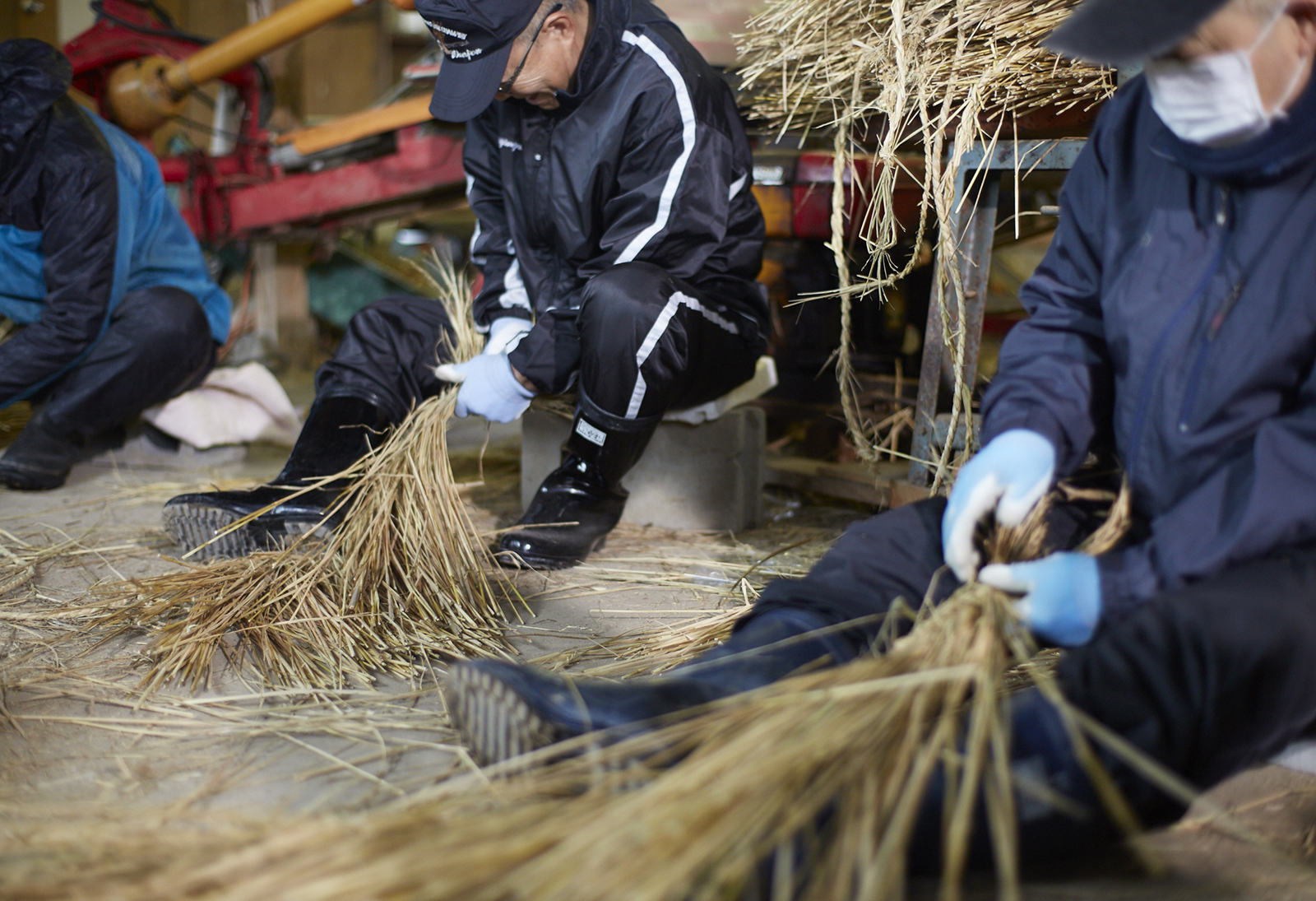
We’ve learned a bit about the background to the ‘namahage’ ritual at the Oga Shinzan Folklore Museum and the ‘Namahage’ Museum. Here we are at the ‘Satoyama no cafe (Woodland Café) Ninigi’ in Shinzan, Oga. We’re talking to the owner of the café, Mr. Makoto Saruta, about how he participates in the ‘namahage’ ritual every year.
Lecturers
Residents of Oga City’s Shinzan area
Contents
Written by Fumiko YABUKI
Editor; former designer. Born and raised in Akita, she is a hardcore Akita native! She is Deputy Chief Editor for the free magazine “non-biri”.
Photography by Yōma FUNABASHI
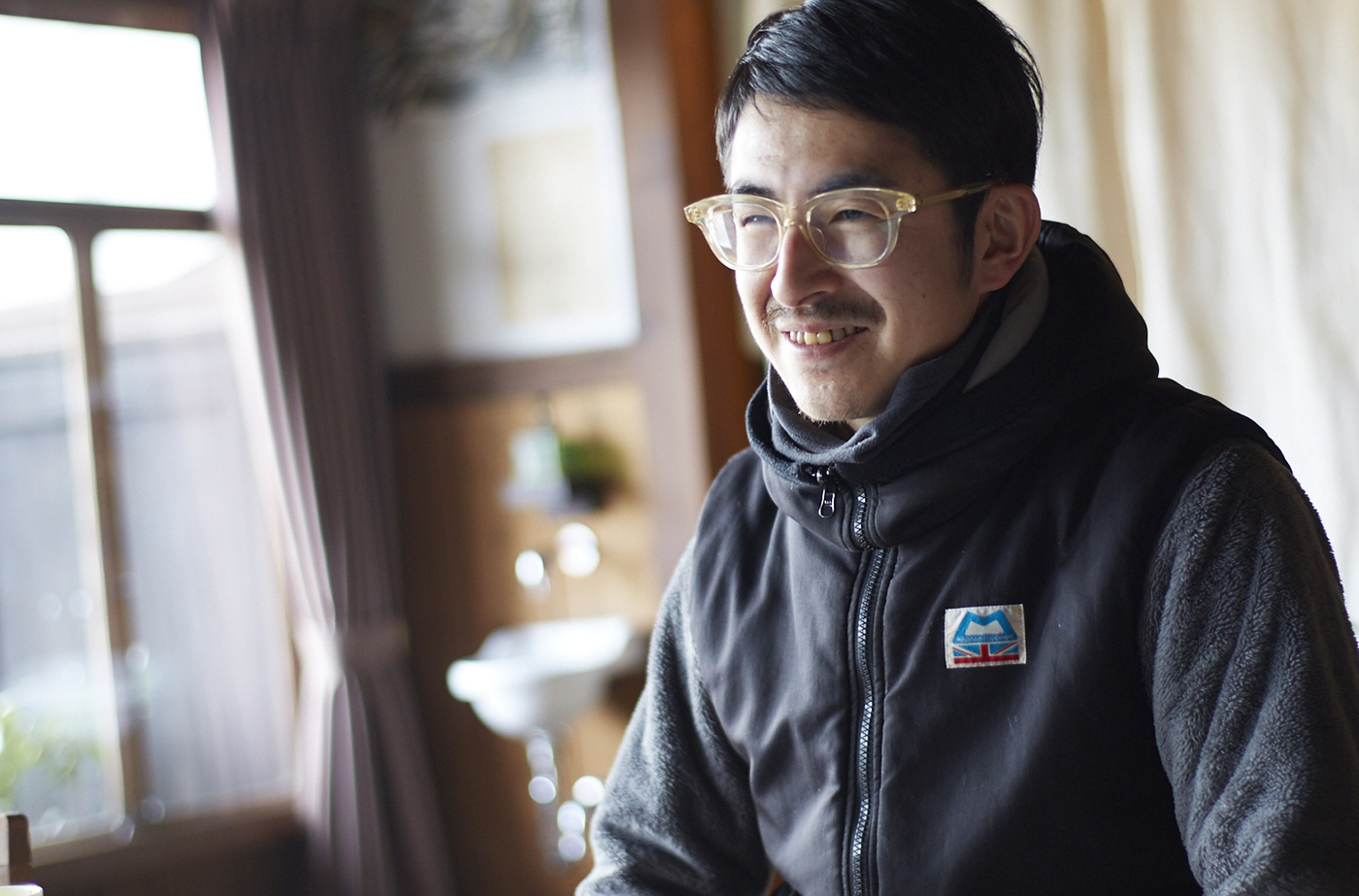
Mr. Makoto Saruta
- Yabuki
- Mr. Saruta, your experiences of ‘namahage’ go right back to your childhood, don’t they? Is it really as scary as it looks?
- Saruta
- Yeah, it’s pretty scary… (Laughs) I moved here with my parents when I was in fifth grade in elementary school after my grandfather died. My initiation into the ‘namahage’ ritual was being bundled into a farmer’s ‘kamasu bukuro’ [straw sack], and being pulled along to that cherry blossom tree.
- Yabuki
- Yikes! Scary!
- Saruta
- As a fifth grader, I was old enough to understand what was coming. However, it was still scary as they showed me no mercy.
- Yabuki
- Did you cry?
- Saruta
- I certainly did! The way I found out about ‘namahage’ was a bit like being told, “If you come to Shinzan this is what you get!” That’s how I first found out about ‘namahage’.
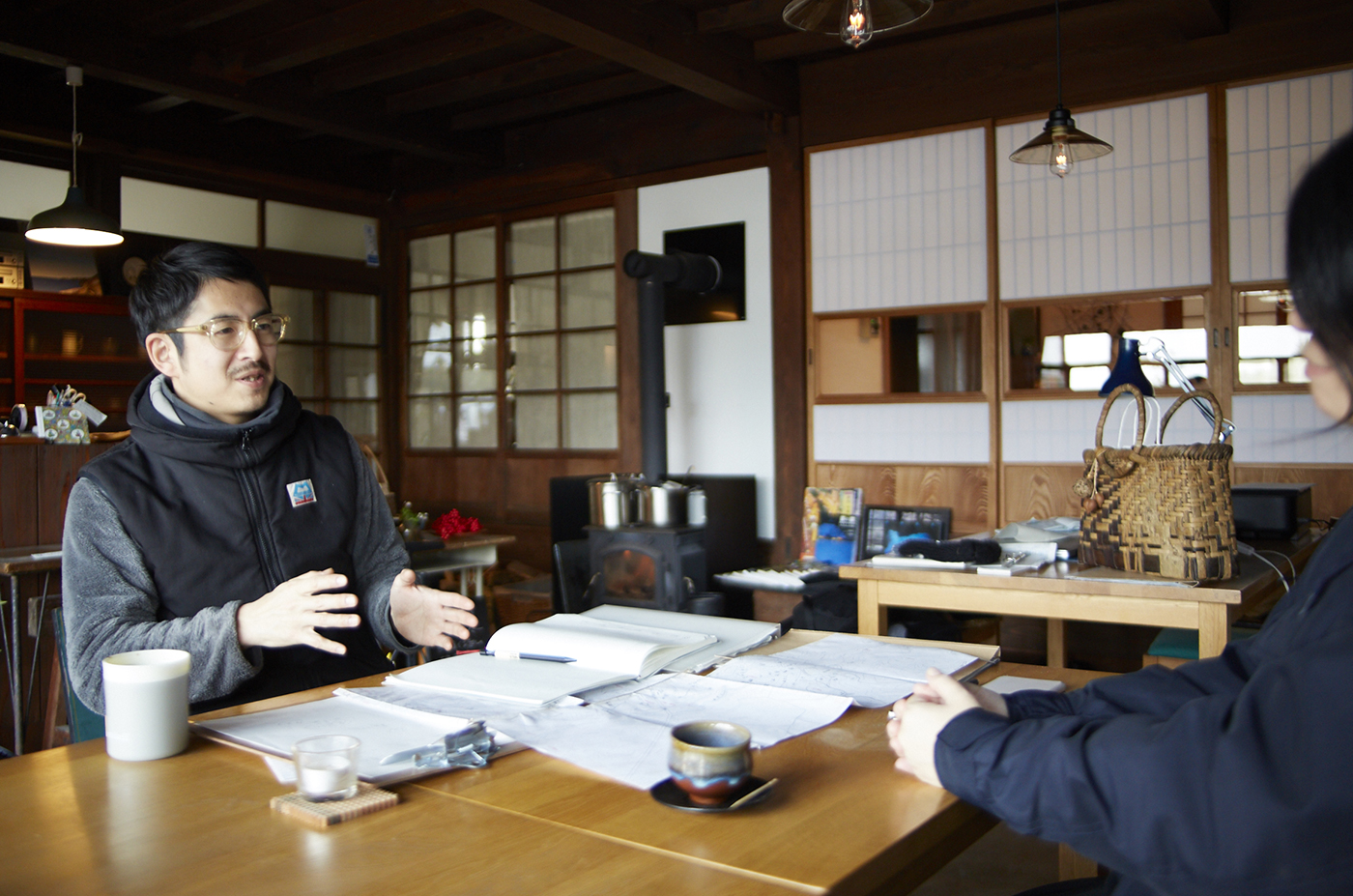
- Yabuki
- Oh no! (Laughs). After that, when was it that you become a ‘namahage’ yourself?
- Saruta
- Quite recently, actually, just before I opened this place, about five years ago. I’d left Akita to work and then returned later on. After I came back, I worked in an office. At that time, my only involvement with ‘namahage’ was welcoming the ogres into my house when they came round.
- Yabuki
- So after that, how did you become a ‘namahage’ yourself for the first time?
- Saruta
- The first year I did it, I took the part of the ‘sakidachi’ telling people that the ‘namahage’ were on their way. I saw the ritual for myself and thought, ‘Aha! So this is what it’s like!’
- Yabuki
- So you picked up what to do by seeing other people do it?
- Saruta
- I didn’t really know what I was supposed to be saying! It was the younger men, my juniors, who had to show me what to do. They’d say things like, ‘Mr. Saruta, this is how you’re supposed to do it” or “Sorry, can I suggest something?…” That kind of thing.(Laughs)
- Yabuki
- Ha ha! So you became a ‘namahage’ the following year?
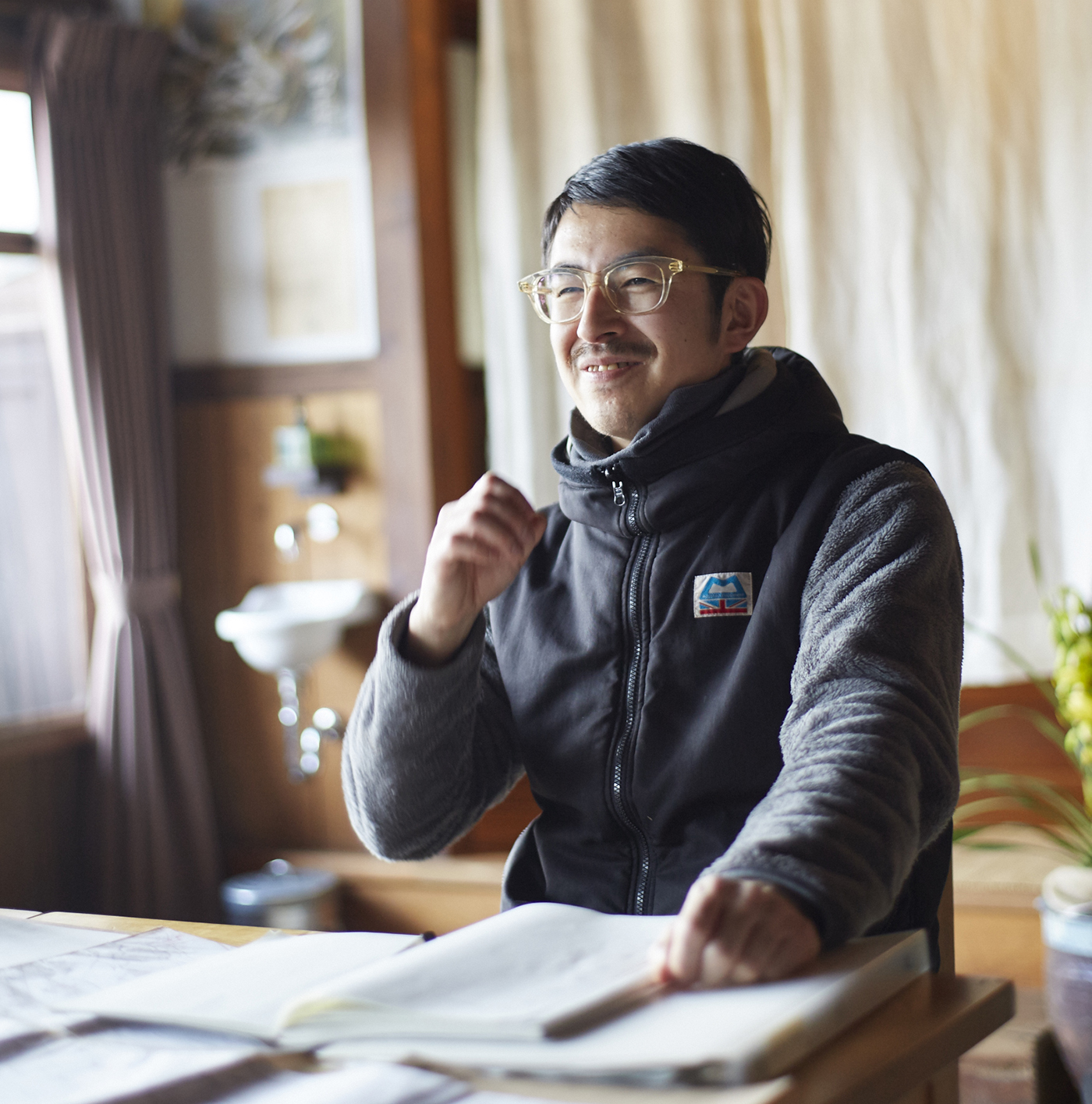
- Saruta
- In Shinzan, the ‘namahage’ are gold or silver. Gold for males, and silver for females. They call each other “Grandad” or “Grandma”. Most of the talking is done by the “Granddad”. The “Grandma” do more of the answering back and the responses, shouting “Grrr!” or “Yes, it is!” so I usually play the ‘Grandma’ role. Even so, when I go into a house, I get muddled up when I’m stamping, and I end up moving my hands and my feet all at the same time.
- Yabuki
- A bit like a robot you mean! (Laughs) When you shout ‘Grrr!’ how do you get the energy and emotion into your voice like that?
- Saruta
- As you’d expect, it’s a feeling of high excitement.
- Yabuki
- Does it just come out that way?
- Saruta
- Yes it does, that’s right. When my face is covered with a mask, I’m almost in a trance. When I speak, my voice vibrates inside the mask. I get a buzz, and my mood lifts. I’m drinking sake as I do this, and when I put my mask on, I can’t really see so well because of the narrow field of vision.
- Yabuki
- You become a completely different person, right?
- Saruta
- Yes, I see everything through the eyes of the ‘namahage’.
- Yabuki
- As if you’re possessed by a spirit, you mean…
- Saruta
- That could well be the case. When we start the question and answer section at each house, it’s like doing an act, as if you’re on autopilot.
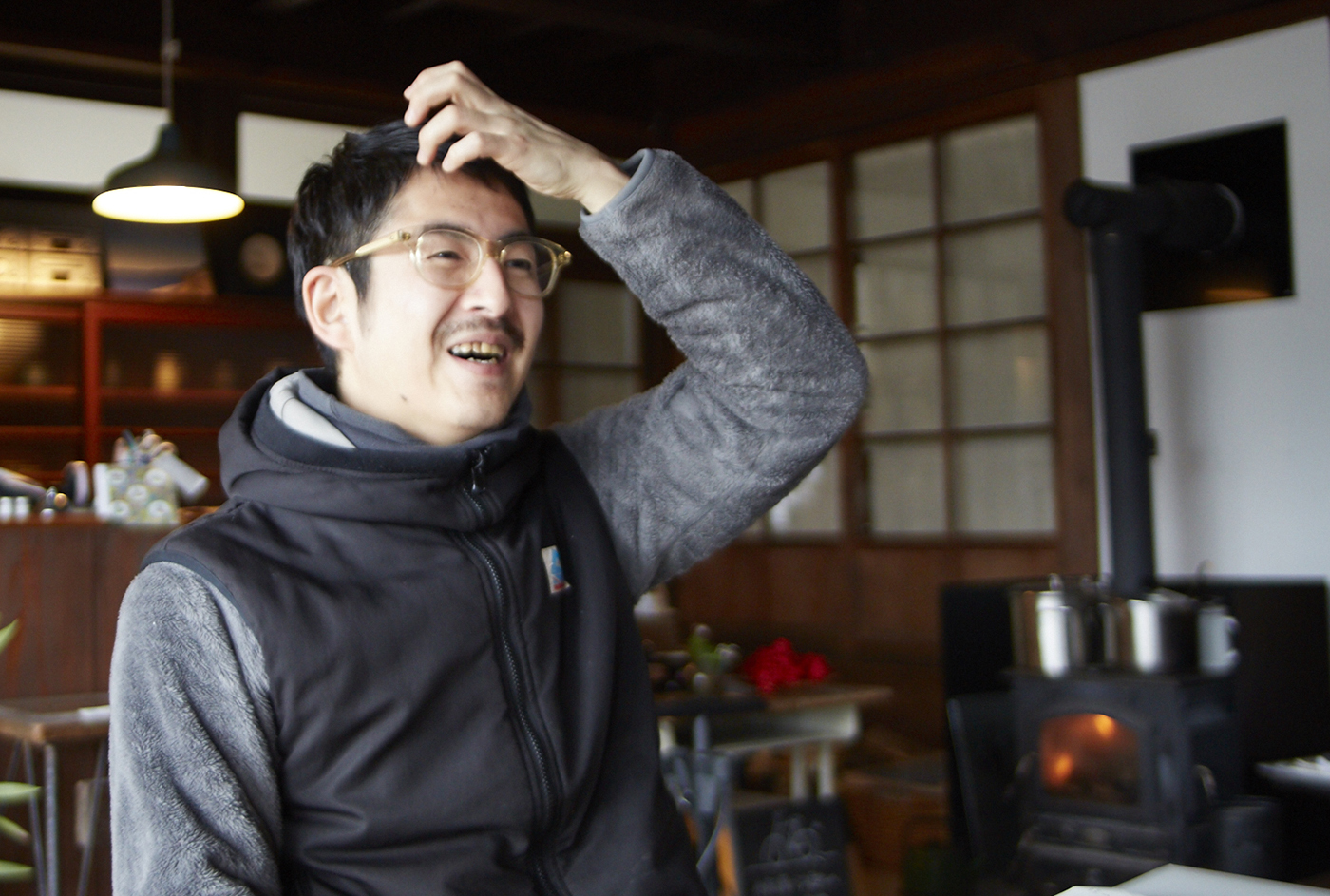
- Yabuki
- The questions and answers are not just about telling the children off, right? You also have to shout at people who may be older than you, don’t you?
- Saruta
- Since there are older men and women present, it’s not just about shouting at people, you’re supposed to be warding off evil and misfortune for them as well. You say things like ‘Have you been well?’ ‘Anything bad happened to you?’ or ‘Stay fit and healthy this year’. That kind of thing.
- Yabuki
- So you are doing this interaction with the people of the village once every year, aren’t you?
- Saruta
- Yes, you get to find out a bit more about what’s been going on in your community. You hear things like, ‘I haven’t been as well this year as I was before’ or ‘My grandchildren were here until last year, but they’re not around so much this year’. These are the sort of things you find out about. If we didn’t have an annual tradition like ‘namahage’ we wouldn’t get to visit other people’s houses like this.
- Yabuki
- I guess that’s true.
- Saruta
- You could say that the ‘namahage’ have taken on the role of enforcing moral discipline in the community. (Laughs)
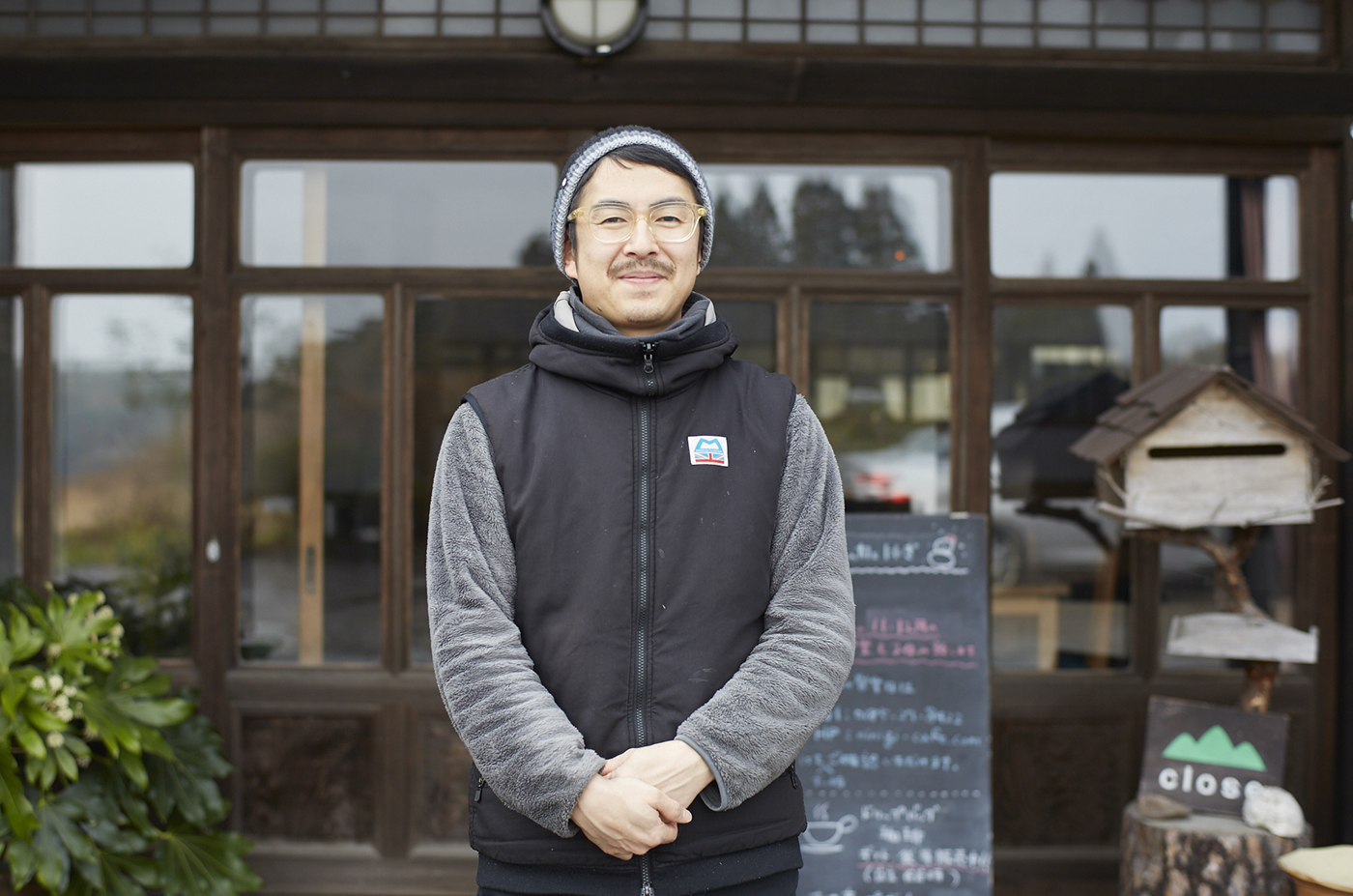
Next, I wanted to get a closer look at how the ‘namahage’s’ straw garments, called ‘kede’, are made, so I went to the workshop to see for myself. I watched the villagers making the ‘kede’ and had a chat with them about the ‘namahage’ tradition.
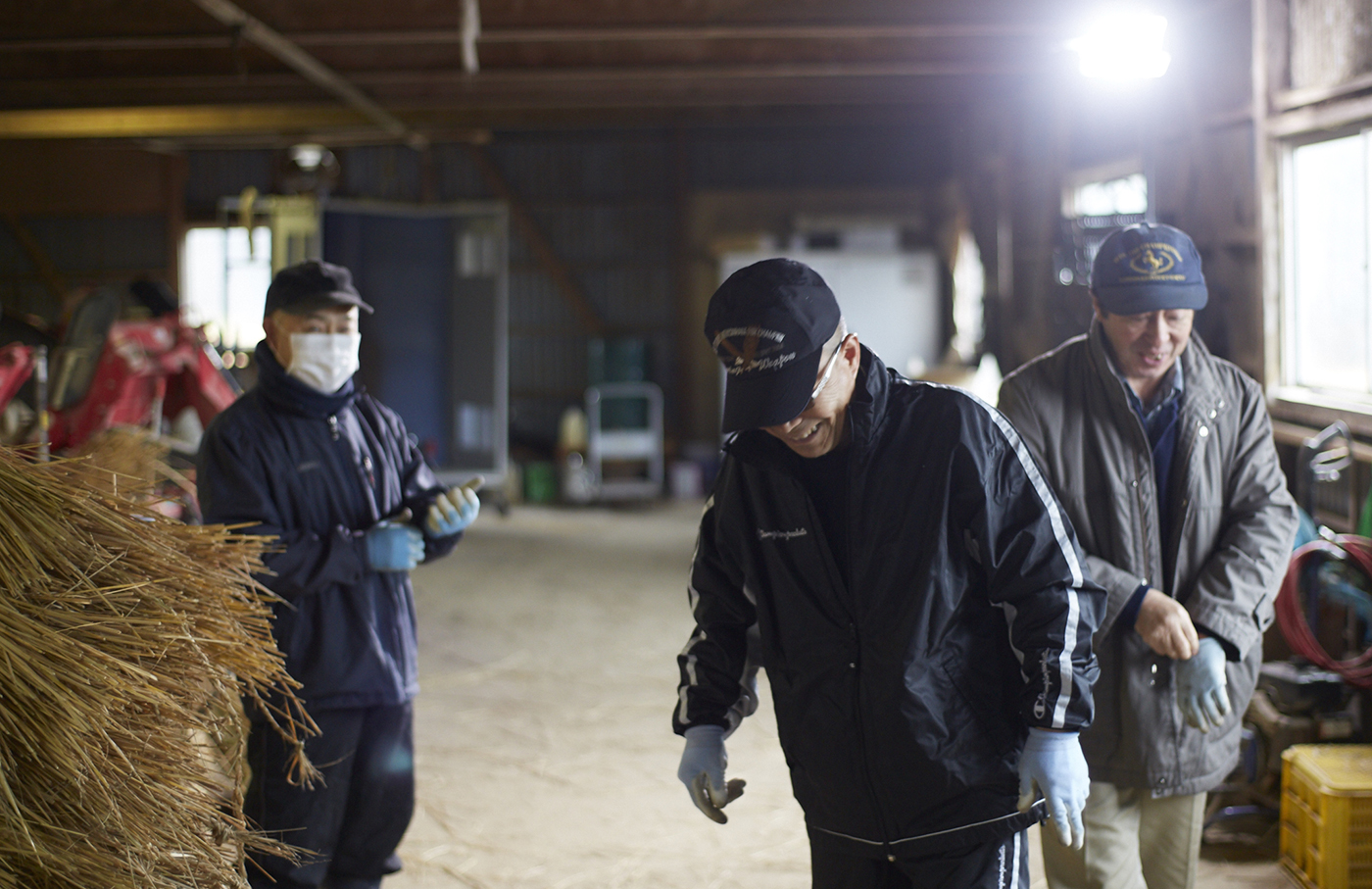
Conversation with Tomikatsu Hatakeyama, a Shinzan local
For as long as I can remember, I’ve always felt a bit nervous and scared about the ‘namahage’ visit on New Year’s Eve. That used to be the only day I made sure I did what my parents told me! (Laughs). The scary masks, the rustling of the straw ‘kede’, the bellowing voices outside, it’s all quite scary. There’s a fearful, apprehensive atmosphere throughout the village from the morning of New Year’s Eve.
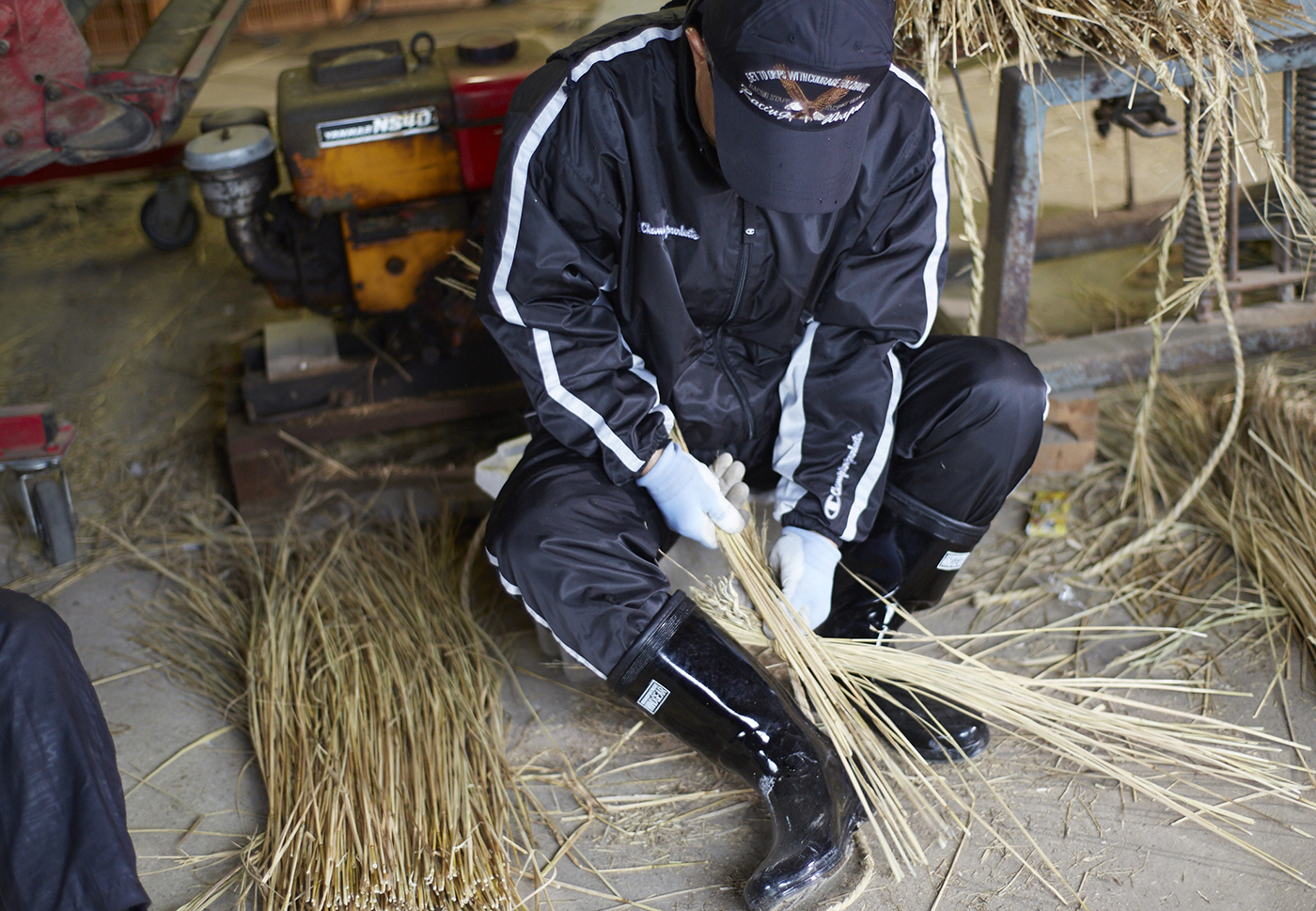
When the ‘namahage’ came, I clutched on to my dad’s kimono. He was strong, and I wanted him to protect me in case the ‘namahage’ tried to take me away. His powerful build and appearance would be enough to send the ‘namahage’ back where they came from, I thought. The ‘namahage’ were dreadful to look at, but I thought my Dad looked equally formidable, and worthy of respect.

In my second and third year in elementary school, I used to hide in the closet with my brothers when the ‘namahage’ came. I became really close with my brothers because of this, as well as becoming more independent. When I was in junior high school, I’d still be getting ticked off and scolded by the ‘namahage’, although I knew it was just the young men of the community behind the ‘namahage’ masks.
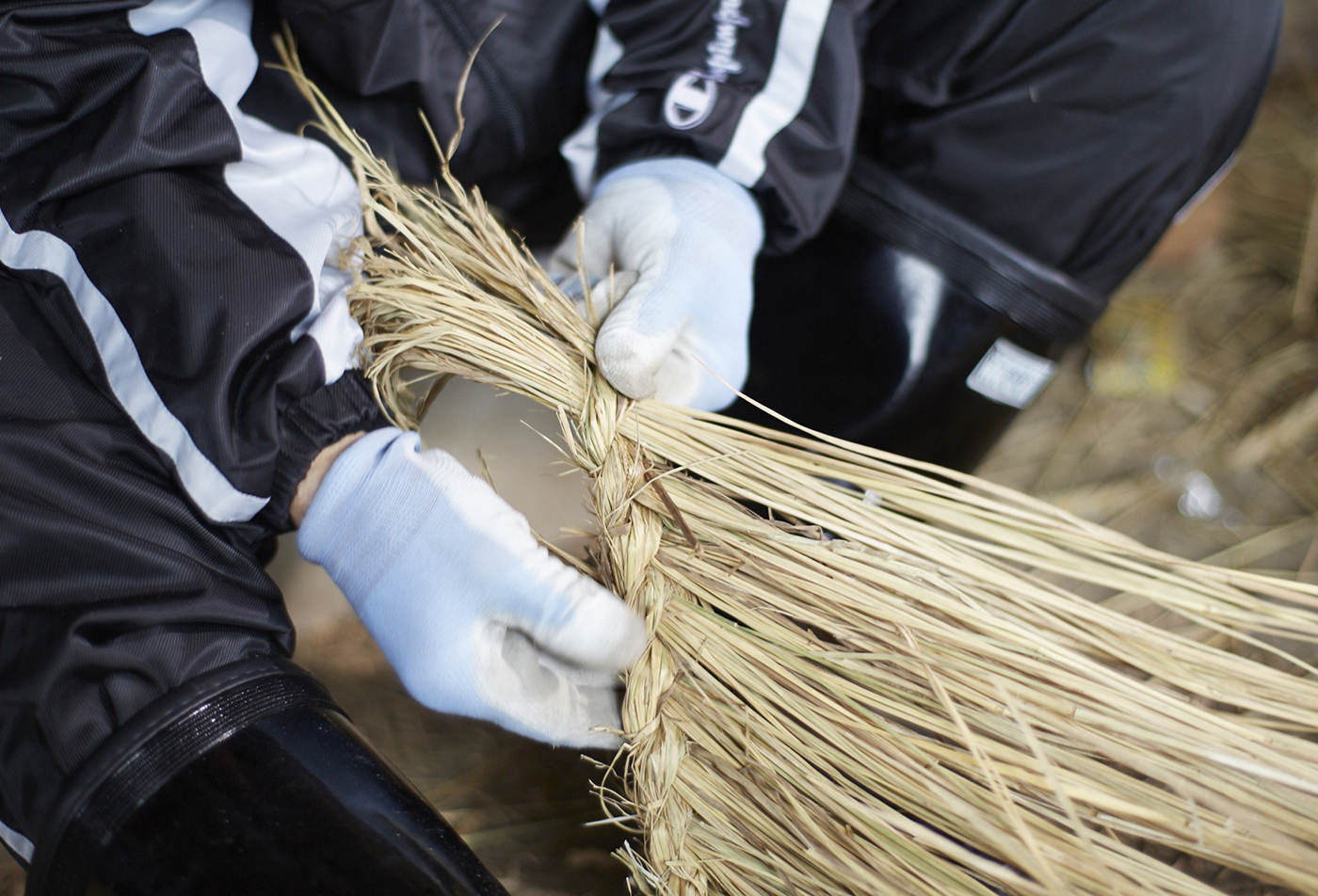
When you think about the interaction of this ritual, you can say it’s the ‘namahage’s’ role to instill moral discipline in the community. In Oga, the ‘namahage’ are said to live nearby. They take an interest in our day to day lives, and are involved with us all year round – people say they’ll appear if we don’t do what they’re told. Unfortunately, however, the tradition is fading away a little now.
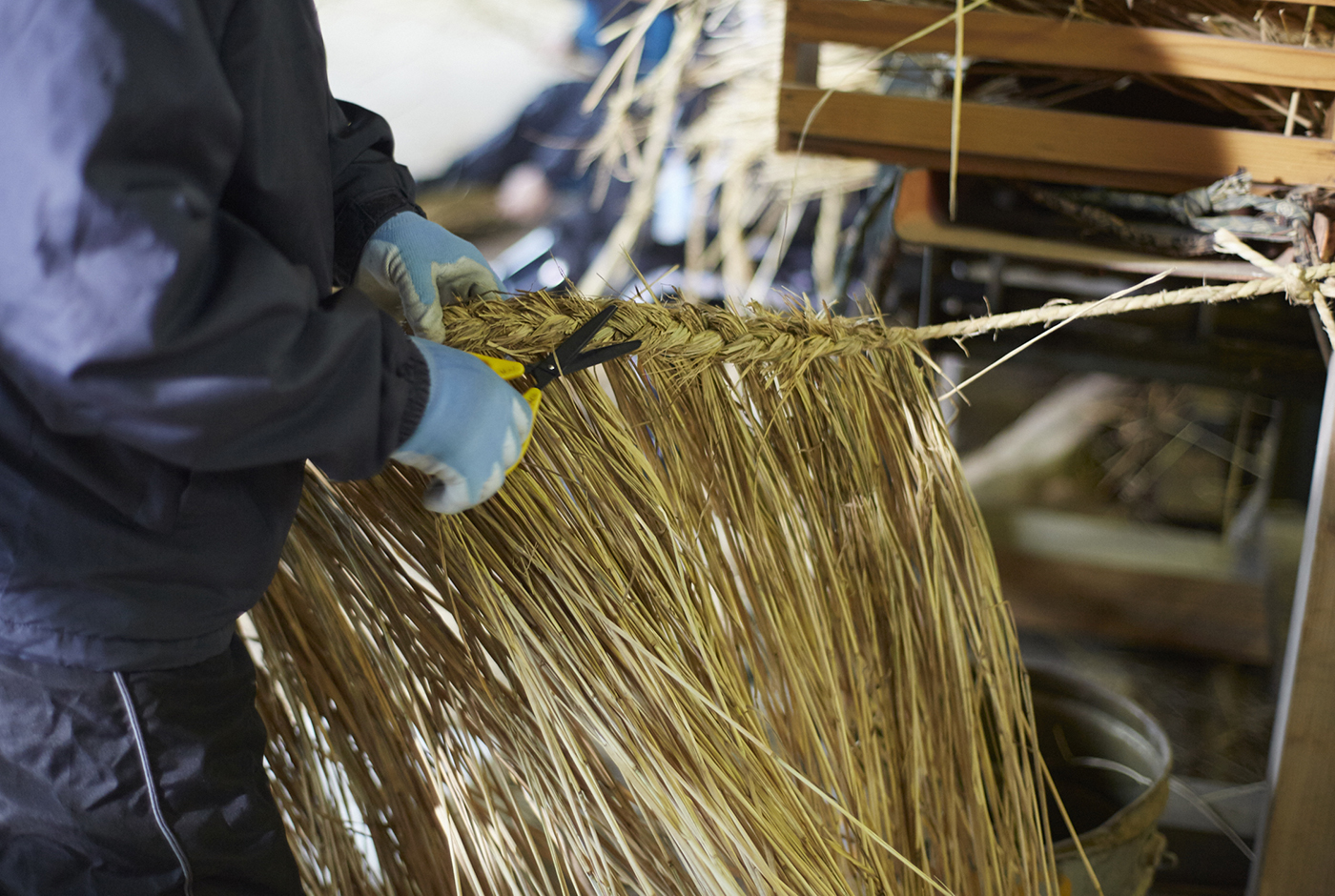
Being a ‘namahage’ means you have been accepted as an adult by the community, since you have to be responsible enough to scold or shout at the head of another family, or at older people. In a normal ‘coming of age ceremony’, just saying to people, “Today you have entered adulthood”, isn’t a particularly inspiring message in itself. But actually participating in the ‘namahage’ ritual gives you a much clearer idea of what your responsibilities as an adult are.
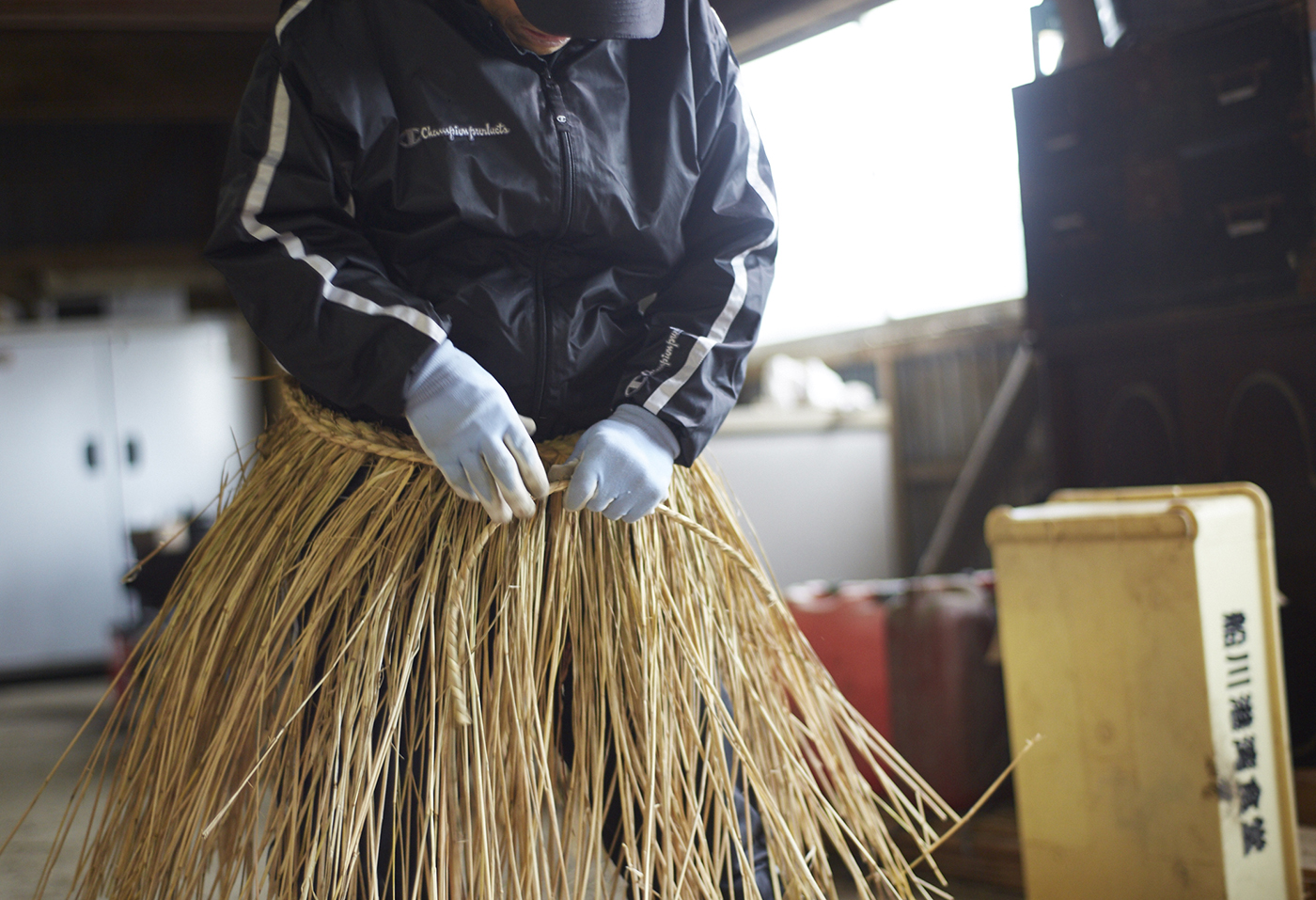
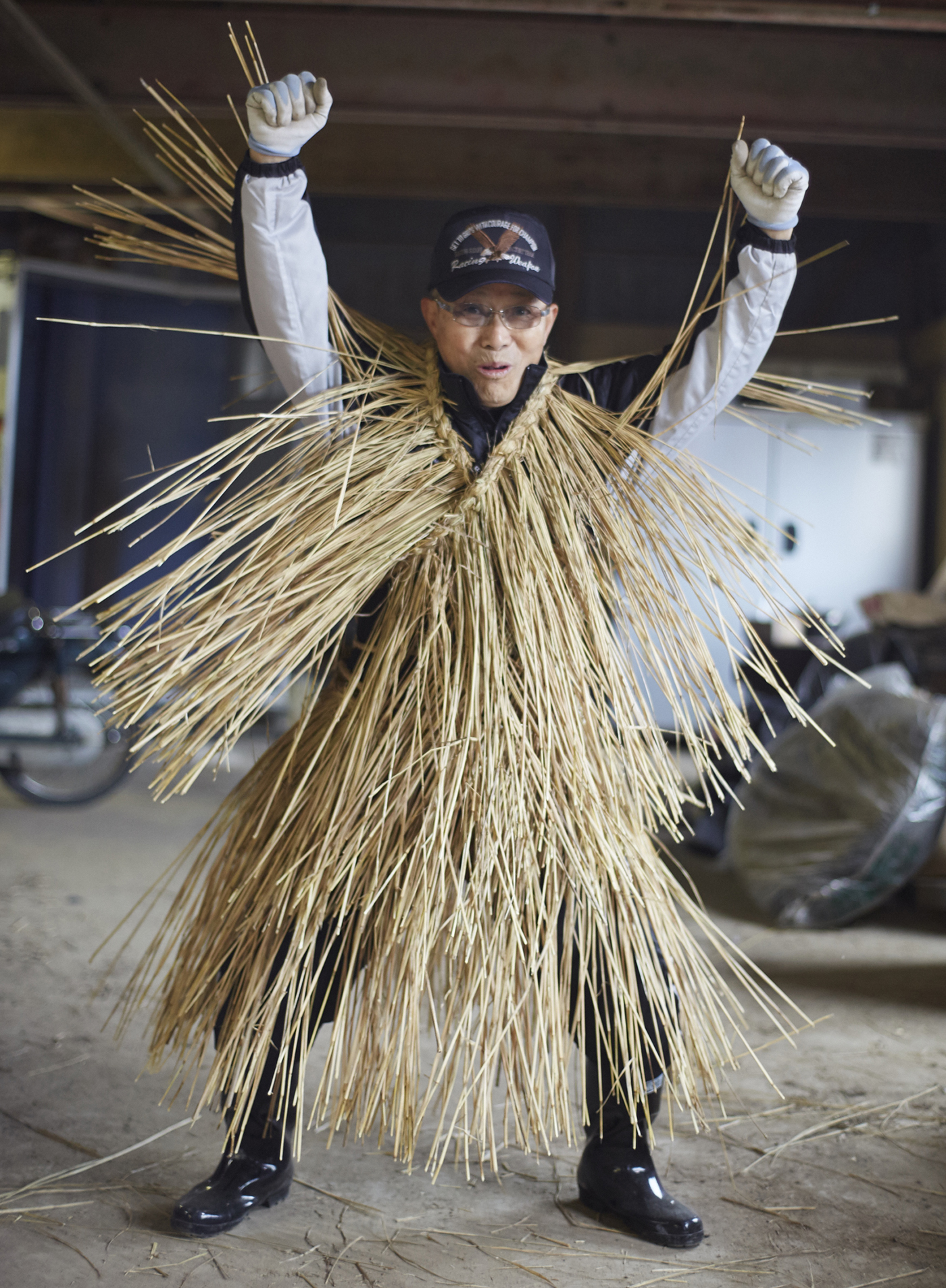
We’ve listened to the stories of people who actually participate in the event. The ‘kede’ are ready, and New Year’s Eve is upon us. Our next report will be from the event itself.
![]()

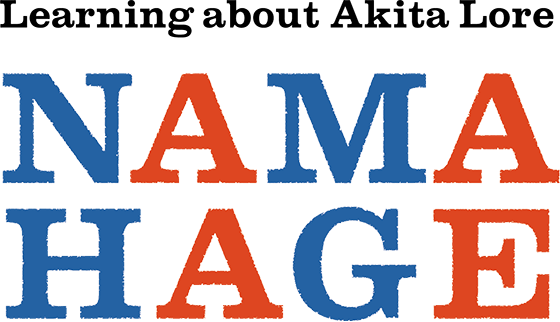

 1. Meeting the Namahage
1. Meeting the Namahage

